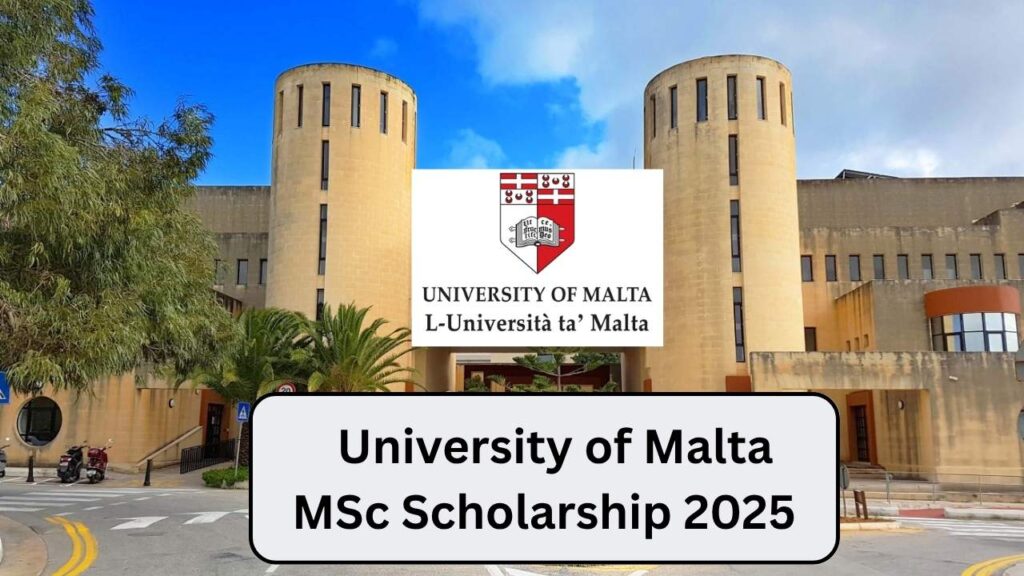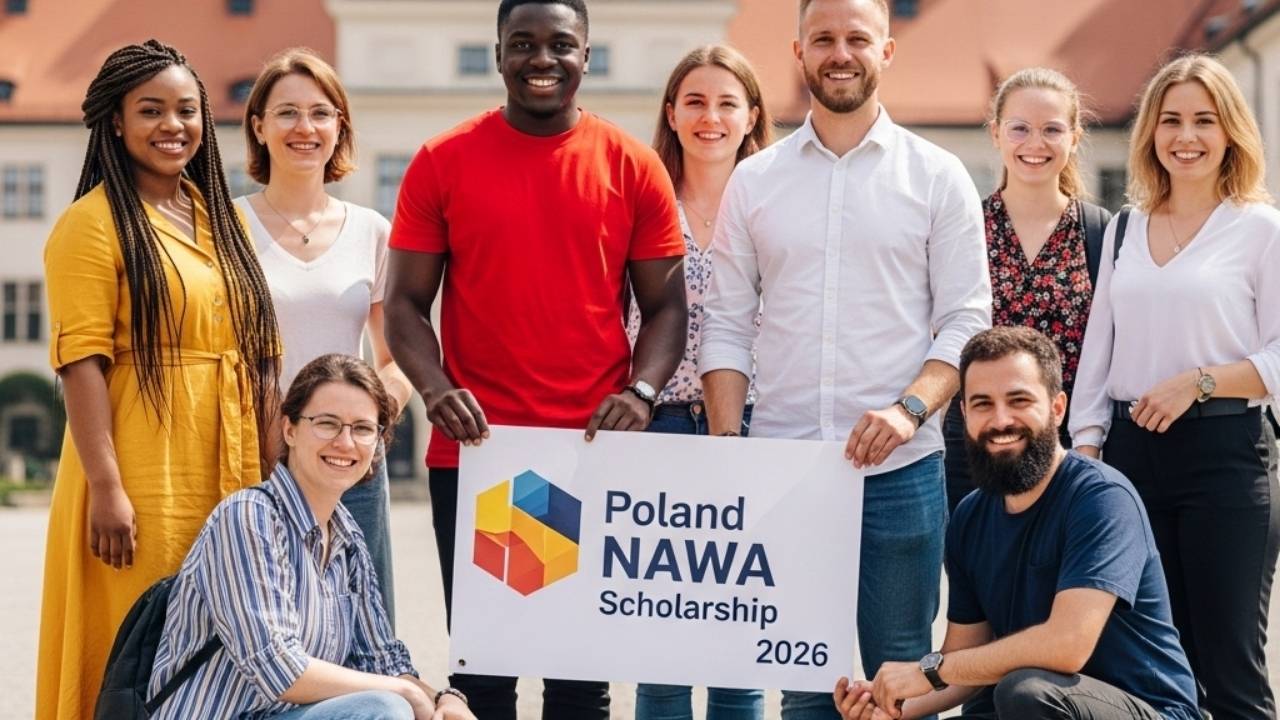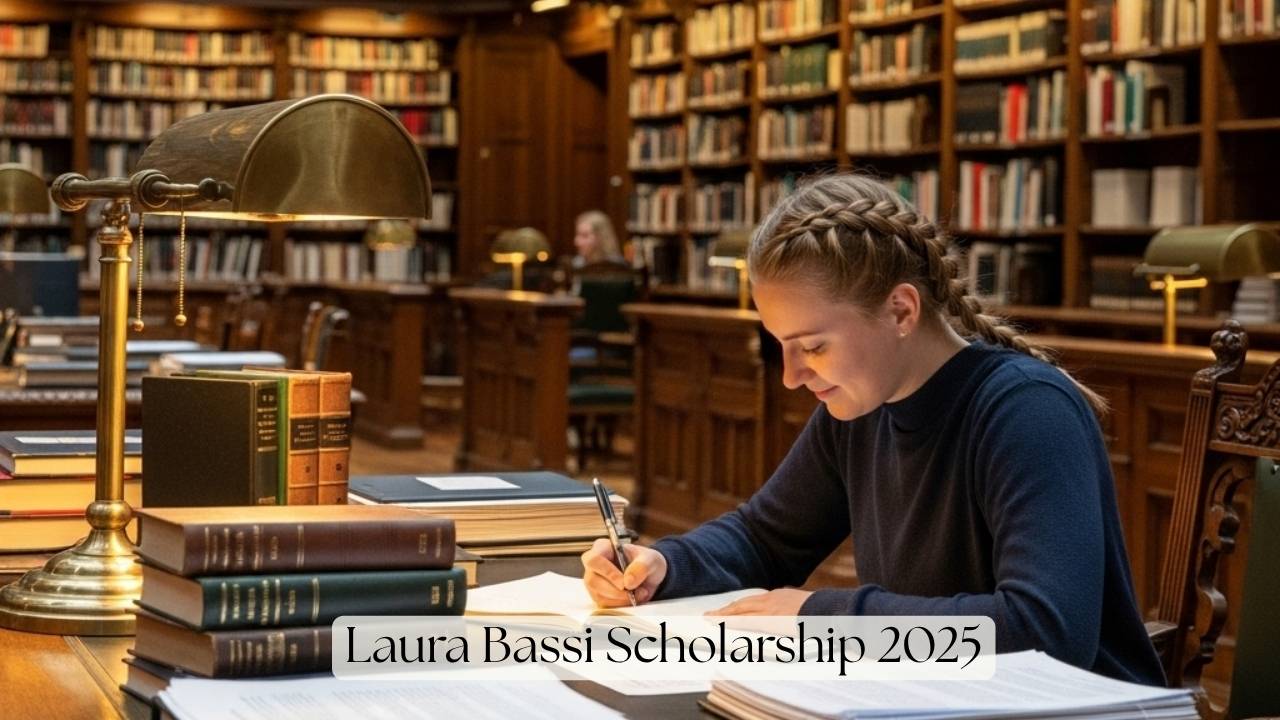University of Malta MSc Scholarship 2025 – Embarking on a Master’s degree is a significant step, and when it’s in a field as critical and dynamic as earthquake science, the journey promises to be both challenging and immensely rewarding. If you’re passionate about understanding our planet’s seismic activities and dream of contributing to this vital area, the University of Malta MSc Scholarship 2025 in Earthquake Science Studies could be your gateway. This guide is designed to illuminate this exciting opportunity, helping you understand the scholarship, the pioneering research involved, and how you can successfully navigate the application process to study in the historically rich and beautiful Mediterranean nation of Malta.

The prospect of securing a scholarship for a specialized postgraduate program can feel daunting, but with the right information and preparation, it’s an achievable goal. In my experience advising students, one common hurdle is finding comprehensive details for niche scholarships – which is precisely what we aim to provide here.
University of Malta MSc Scholarship 2025
| Key Fact | Detail |
| Scholarship Focus | M.Sc. by Research position linked to the project: “Investigating Malta’s Recent Seismic Activity and Development of Novel Tools for Earthquake Analysis.” |
| Degree Programme | Master of Science (MSc) in Geosciences (by research) |
| Academic Year Start | September 2025 .University of Malta Newspoint |
| Scholarship Benefits (Stipend) | €500 per month for one year. |
| Tuition Fee Support | Local candidates: Up to €400 covered for the first year. Non-EU/EEA candidates: Can apply for a tuition fee waiver of 40% to 100% based on merit after unconditional acceptance into the MSc programme. |
| Application Deadline (Project Scholarship) | Friday, 4 July 2025 University of Malta International Office |
Why Study Earthquake Science at the University of Malta?
The Mediterranean region is a fascinating natural laboratory for geoscientists. Its complex tectonic setting, where the African and Eurasian plates converge, results in significant seismic activity. Studying at the University of Malta places you directly within this dynamic zone, offering unparalleled opportunities for research and learning.
The Department of Geosciences at the Faculty of Science is at the forefront of this research. The specific M.Sc. by Research project, “Investigating Malta’s Recent Seismic Activity and Development of Novel Tools for Earthquake Analysis,” led by Dr. Matthew Agius, offers a chance to:
- Update Malta’s earthquake catalogue using data from the Malta Seismic Network.
- Gain hands-on experience with cutting-edge earthquake analysis tools like SeisComP and ISOLA.
- Work closely with an expert supervisory team.
- Contribute directly to significant geoscientific research relevant to Malta and the wider Mediterranean.
This isn’t just about textbooks and lectures; it’s about active participation in discovery. Undertaking an MSc Geosciences Malta funding opportunity like this allows you to be part of real-world scientific investigation.

Diving Deep: The Scholarship and MSc Programme Details
This specific scholarship is tied to an M.Sc. by Research within the Department of Geosciences. Let’s break down what that means for you.
Eligibility Criteria
To be considered for this Malta earthquake science postgraduate scholarship, applicants must generally:
- Meet Admission Requirements: Satisfy the Master of Science in Geosciences admission criteria as per University of Malta (UM) regulations.
- Academic Background: Hold a Bachelor’s degree (typically Second Class Honours or equivalent) in Geosciences, Physics, Earth Systems, Mathematics, Statistics, or closely related science or IT fields.
- Programming Skills: Preference is often given to candidates who can demonstrate proficiency in programming – a key skill in modern data analysis.
- Conditional Application: Final-year undergraduate students can usually apply, provided their degree completion meets the programme’s requirements.
- English Language Proficiency: International applicants must submit a recognized English language proficiency certificate (e.g., TOEFL, IELTS). Details can be found on the University of Malta’s international admissions page.
- Financial Means: While the scholarship offers a stipend and potential fee waiver, international students must also demonstrate they have adequate funds to cover all living and study costs in Malta.
What the Scholarship Covers (and What it Doesn’t)
- Stipend: €500 per month for one year. This is intended as an allowance and may not cover all living expenses.
- Tuition Fees:
- For local/EU/EEA candidates, the project covers up to €400 for the first year (the standard annual enrolment fee).
- For non-EU/EEA candidates, the annual tuition fee for the MSc in Geosciences is €13,400 (as of recent information). However, upon receiving an unconditional offer for the MSc by research, these students can apply for a tuition fee waiver ranging from 40% to 100%, awarded based on merit. Securing this waiver is a separate step after gaining admission to the MSc program.
It’s essential to budget carefully and explore all funding avenues.
The MSc in Geosciences Programme
The Master of Science in Geosciences is a research-intensive programme. This particular scholarship opportunity focuses your research on a specific, funded project about Maltese seismicity. You’ll be deeply involved in:
- Data collection and analysis.
- Utilizing specialized geophysical software.
- Developing research methodologies.
- Writing a dissertation based on your findings.
This hands-on approach is invaluable for anyone looking to build a career in research or applied geosciences.
Crafting Your Winning Application: A Step-by-Step Guide
Securing a spot in a competitive Master’s program and a linked scholarship requires a well-thought-out application. I’ve seen many successful applicants focus on clearly articulating their research interest and its alignment with the specific project.

1. Understand the Specific Project Call
For the “Investigating Malta’s Recent Seismic Activity” scholarship, the application process is detailed in the official call. Typically, this involves:
- Letter of Application: This is your chance to shine. Clearly state why you are interested in this specific project. Highlight relevant skills (like programming, data analysis, or previous geoscience experience) and your passion for earthquake science.
- Curriculum Vitae (CV): A comprehensive academic CV detailing your education, any research experience, publications (if any), relevant projects, and skills.
- Academic Transcripts and Certificates: Official copies of your degrees and grades. International applicants may need certified English translations.
- References: Contact details for two referees who can speak to your academic abilities and research potential.
2. Key Documents Checklist
- Completed application form (if separate from the letter).
- Letter of motivation (often part of the application letter).
- Detailed CV.
- Copies of degrees/diplomas and transcripts.
- English language proficiency certificate (for non-native English speakers).
- Contact details for referees.
- Copy of your passport.
3. Submitting Your Application for the Scholarship Project
As per the University of Malta Newspoint, applications for this specific research scholarship (letter, CV, certificates, referee contacts) should be sent by email to Ms. Karen Cacciattolo at [email protected] by Friday, 4 July 2025.
4. The University MSc Application (A Separate Step)
It’s crucial to understand that being selected for the scholarship project usually means you then need to formally apply for admission to the Master of Science in Geosciences programme through the University of Malta’s standard application process. The scholarship award is contingent on you meeting the university’s entry requirements and being accepted into the MSc programme.
- Check the University of Malta’s postgraduate admissions page for detailed information on the MSc application process, general deadlines, and required documentation.
Tips for Success
- Early Preparation: Start gathering your documents and drafting your application well before the deadline.
- Tailor Your Application: Emphasize how your interests and skills align specifically with the earthquake research project. Generic applications rarely stand out.
- Highlight Relevant Experience: Even undergraduate projects or coursework in geophysics, data analysis, or programming can be valuable.
- Strong References: Choose referees who know you well academically and can attest to your research potential. Provide them with information about the program and project.
- Proofread Meticulously: Ensure your application is free of errors in grammar and spelling.
This official University of Malta video provides general insights into the campus and student life.16
Life in Malta: Sun, Sea, and Study
Choosing to study earthquake science in Europe by coming to Malta offers more than just academic enrichment. Malta is a unique archipelago with a rich history, vibrant culture, and stunning Mediterranean landscapes.
- Welcoming Environment: Malta has a long history of welcoming international visitors and students. English is an official language, making everyday life and academic pursuits accessible.
- Cost of Living: While the scholarship stipend contributes, Malta’s cost of living is generally considered moderate compared to other Western European countries. However, budgeting is still important. You can find more about living costs on various expat and student forums.
- Cultural Hub: Explore ancient temples, historic cities like Valletta (a UNESCO World Heritage site), and enjoy a blend of Mediterranean traditions.
- Connectivity: Malta is well-connected by air to major European cities, making it an accessible location.
FAQs
Is this scholarship fully funded?
The scholarship linked to the “Investigating Malta’s Recent Seismic Activity” project provides a monthly stipend of €500 for one year and covers local tuition fees up to €400. Non-EU/EEA students (who face higher tuition fees of €13,400) can apply for a merit-based tuition fee waiver of 40%-100% after receiving an unconditional offer for the MSc programme, as stated by the University of Malta. However, students will need to show proof of additional funds for living expenses.
What is the primary language of instruction for the MSc in Geosciences at the University of Malta?
The primary language of instruction at the University of Malta, including for postgraduate programmes like the MSc in Geosciences, is English.
Can I apply if I am in the final year of my Bachelor’s degree?
Yes, according to the University of Malta’s call for this research scholarship, students in their final year of an eligible undergraduate programme can be considered, subject to the successful completion of their studies in line with the outlined requirements.
What kind of programming skills are preferred?
While not always a mandatory prerequisite for all geoscience streams, for a research project involving “Development of Novel Tools for Earthquake Analysis,” proficiency in programming languages commonly used in scientific computing and data analysis (e.g., Python, MATLAB) is highly advantageous and often preferred, as mentioned in the scholarship call.
Is the application process for the scholarship the same as for the MSc programme?
No, they are related but distinct. For this specific research-linked scholarship, you first apply for the scholarship project as detailed in the call (deadline July 4, 2025). If successful, you will then need to complete the separate application process for formal admission into the Master by Research programme at the University of Malta. More details on general postgraduate admissions can be found on the University of Malta website.






